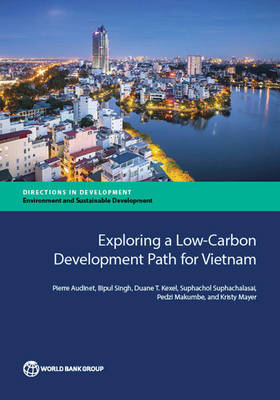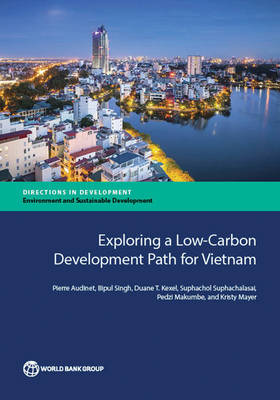
- Afhalen na 1 uur in een winkel met voorraad
- Gratis thuislevering in België vanaf € 30
- Ruim aanbod met 7 miljoen producten
- Afhalen na 1 uur in een winkel met voorraad
- Gratis thuislevering in België vanaf € 30
- Ruim aanbod met 7 miljoen producten
Zoeken
Exploring a Low-Carbon Development Path for Vietnam
Pierre Audinet, Bipul Singh, Duane T Kexel, Suphachol Suphachalasai, Pedzi Makumbe, Kristy Mayer
€ 37,95
+ 75 punten
Omschrijving
Bringing together a large set of data and building on two years of consultations in Vietnam with Government counterparts, research organizations, state-owned enterprises, private sector and Vietnam international development partners, the report formulates two scenarios to explore and analyze Vietnam's options up to the year 2030: a business as usual and a low carbon development scenario. Based on a thorough data modeling effort for the key carbon emitting sectors of Vietnam, the report also provides some policy guidance for the Government's consideration. This report is also unique as it brings together and presents data on multiple sectors of Vietnam's economy, making this information available for future reference. This effort is the result of two years of collaboration with the Government of Vietnam as part of the Vietnam Low Carbon Options Assessment technical assistance. By highlighting several economic opportunities and clarifying the issues at hand, this work is a milestone in this complex debate and I believe will help all stakeholders willing to consider and responsible to design the policies and measures to address those challenges.
Specificaties
Betrokkenen
- Auteur(s):
- Uitgeverij:
Inhoud
- Aantal bladzijden:
- 156
- Taal:
- Engels
- Reeks:
Eigenschappen
- Productcode (EAN):
- 9781464807190
- Verschijningsdatum:
- 31/12/2015
- Uitvoering:
- Paperback
- Formaat:
- Trade paperback (VS)
- Afmetingen:
- 178 mm x 251 mm
- Gewicht:
- 340 g

Alleen bij Standaard Boekhandel
+ 75 punten op je klantenkaart van Standaard Boekhandel
Beoordelingen
We publiceren alleen reviews die voldoen aan de voorwaarden voor reviews. Bekijk onze voorwaarden voor reviews.







